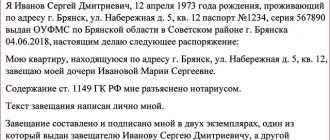The right granted by the legislator to transfer real estate from state or municipal property to private property was received positively. Many apartments were privatized immediately. But those who did not do this in the first years were given the opportunity to acquire their own housing. The program has been constantly extended and is currently indefinite.
Against the backdrop of this unique opportunity to obtain ownership of housing, a phenomenon such as the deprivatization of apartments arose. It involves the return of previously privatized living space to the previous owner.
Deprivatization and deprivatization - what is the difference?
The legislation provides for two options for returning previously privatized real estate to the ownership of the country:
- deprivatization;
- deprivatization.
Deprivatization is the recognition of privatization as invalid. The court may make such a decision in the event of infringement during privatization:
- rights of minors;
- rights of disabled people.
After deprivatization, a citizen has the opportunity to again exercise his right to privatization, since according to the law such a right is considered not yet realized.
But deprivatization is the voluntary desire of the owner of a residential premises to return an apartment or house to state ownership. After deprivatization, the former owner takes over the role of tenant under a rental contract. A citizen who has exercised the right of deprivatization will no longer be able to privatize the property, since the right of privatization, in the opinion of the legislator, is considered exercised.
What is deprivatization?
The concept of privatization appeared back in 1992 and gave citizens a unique opportunity to re-register municipal housing occupied on the basis of a social tenancy agreement (order). At the same time, a need arose for the reverse procedure, namely the return of privatized real estate to the state. Soon this process was officially legalized and received the name - deprivatization.
The basis for the reverse re-registration of housing in favor of the state is Articles 168-172 and 175-179 of the Civil Code of the Russian Federation. The privatization agreement can only be canceled through the court.
Reasons for refusing to privatize an apartment
As a rule, citizens decide to deprivatize for several reasons:
- The residential premises are located in a building that is planned to be demolished, or is in disrepair. In the event of demolition of a building, the owner of the apartment is required by law to provide housing of the same area as the owner. But if a citizen lives in an apartment as a tenant, he must be provided with housing based on 18 m2 for each family member.
- Large expenses for home repairs and maintenance of the area around it.
- Housing tax with the need to pay annually.
- They want to protect themselves from swindlers who are “hunting” for privatized housing.
- Easier to inherit. The tenant has the right to inherit the property to the chosen heir and is not afraid that other heirs will also present their rights to square meters. In addition, after entering into an inheritance, the heir will not have to pay taxes and duties.
Russians may have other reasons for deprivatization.
Reasons for returning housing to the state
The reasons for the deprivatization of housing almost always lie in the economic interests of the new owners. Among the most common are the following:
- there is no means to pay a large tax. For some time now, the rules for calculating property tax have changed, and as a result it has increased. Not all categories of taxpayers have benefits, and tax exemption or reduction is not available in all regions;
- There is no way to pay contributions for major repairs. The fact is that the responsibility for repairs lies with the owner. The return of housing to the municipality also implies the transfer of this obligation to it;
- participation in housing programs or the opportunity to improve living conditions. For example, when participating in other regional programs;
- fraud protection. This method of protection is increasingly being chosen by lonely elderly people who are afraid of becoming victims of so-called black realtors.
When returning housing, you need to remember that in most cases it will not be possible to participate in privatization again.
Conditions and acceptable methods of deprivatization
Russians can carry out deprivatization of residential real estate, observing several important conditions:
- the property must be the only place of residence for its former owner;
- an apartment or house should not act as collateral for a loan;
- The owner of residential property should not have rent debts.
The legislation provides for 2 options for the deprivatization of housing:
- the court declares the agreement on the transfer of ownership of real estate invalid;
- the owner of the residential premises, at his own request, enters into an agreement with the state on the voluntary transfer of property to the country.
It is worth noting that until recently it was most often necessary to use the first option for the deprivatization of housing.
Housing rights after deprivatization
Many users have a natural question regarding the future fate of the owner after deprivatization.
According to the current principles of legislation, one of the most important conditions for the procedure is the recognition of the apartment as the only home for the owner. In such a situation, even if he renounces his property rights in favor of the municipality, he will retain the lifelong right to reside in the apartment.
Consequently, the deprivatization of an apartment will entail a number of consequences, including:
- Preservation of the lifelong right to reside in deprivatized housing. A social tenancy agreement will be concluded with the former owner, which will confirm his rights to housing;
- The user will lose the opportunity to independently manage the property. Consequently, he will not be able to donate or sell his own home, since in the process of deprivatization he will lose his ownership rights;
- The apartment cannot be rented out legally. If the user lets the tenant in, and this becomes known, he will be recognized as a violator, and administrative proceedings will be opened against him, which will result in penalties or termination of the social tenancy agreement.
Judicial deprivatization of residential real estate
At the moment, deprivatization of housing through the courts is carried out only in cases where violations are found in the agreement on the privatization of residential real estate.
The privatization agreement is canceled by the court if:
- the transaction violated the terms of a law or legal act (Article 168 of the Civil Code);
- the concluded agreement contains contrary legal requirements (Article 169 of the Civil Code);
- the transaction was concluded without the intention of fulfilling its terms (Part 1 of Article 170 of the Civil Code);
- the agreement was concluded to cover up another agreement (Part 2 of Article 170 of the Civil Code);
- the agreement was signed by a citizen who is incapacitated (Article 171 of the Civil Code);
- a transaction made by a citizen limited in his legal capacity (Article 176 of the Civil Code);
- the contract was concluded by a citizen when he did not understand the meaning of his actions (Article 177 of the Civil Code);
- the agreement was signed in a state of error (Article 178 of the Civil Code);
- the contract was concluded fraudulently or with the help of threats and violence (Article 179 of the Civil Code).
Deprivatization in court takes much longer, since there is a need to provide evidence for the court of violation of the requirements of the Civil Code.
Termination of a contract through court
Cancellation of privatization by court occurs when violations are identified during the transfer of real estate. The general grounds for termination of a contract are determined by the Civil Code of the Russian Federation.
The reasons for litigation are:
- refusal of local governments to accept property;
- participation in the transaction of an incapacitated person;
- execution of a privatization agreement under duress.
The right to go to court is granted to any citizen whose interests have been violated. The transaction must be contested within 3 years from the date of conclusion. In some cases, the court restores the statute of limitations if the applicant missed time for valid reasons.
Drawing up a statement of claim
Disputes related to privatization are considered in district (city) courts at the address where the property is located. The form of the claim is fixed by law (Civil Procedure Code of the Russian Federation, Article 131).
A correctly drafted appeal contains:
- exact address and name of the judicial authority;
- information about the plaintiff and defendant (personal data, address, telephone);
- information about the disputed real estate (location, cadastral characteristics);
- a summary of events indicating specific violations;
- references to legislative norms;
- claim (termination of the privatization agreement and transfer of rights to real estate to the municipality);
- list of applications;
- signature and date of preparation.
The form for a statement of claim to invalidate the privatization transaction of a residential premises (apartment) is available.
The number of copies of the claim depends on the number of participants in the process.
Documents attached to the claim
The fact of violation of rights must be documented. The annexes to the application include:
- a copy of the plaintiff's identity card;
- a copy of the privatization agreement;
- extract from the state real estate register;
- technical certificate of the premises;
- other written evidence.
The plaintiff's arguments may be supported by the testimony of witnesses at the trial.
State duty: amount and method of payment
In order for the claim to be accepted by the court, a state fee must be paid. The contribution amount for citizens is 300 rubles (Tax Code of the Russian Federation, Article 333.19).
Payment is made in any way convenient for the payer:
- at the bank office;
- through a payment terminal;
- online;
- at the Russian Post Office.
The state provides benefits for exemption from mandatory payments for certain categories of plaintiffs (Tax Code of the Russian Federation, Article 333.36).
The principle of returning the apartment
To return a privatized apartment or house to state ownership, you will have to:
- collect a certain package of documents;
- check whether the housing meets the requirements put forward by the authorities.
Even if you collect all the documents and fulfill other requirements for deprivatization, be prepared to hear a refusal to deprivatize. Such a refusal may be motivated by the following reasons:
- rights to privatized real estate are owned by 3 persons;
- owners of privatized housing are the owners of other residential premises;
- persons were registered in the privatized apartment or house who were not registered in the residential premises at the time of privatization;
- redevelopment in an apartment or house not coordinated with the BTI;
- at least one homeowner does not want to carry out deprivatization;
- guardianship authorities have not given their consent to return the property to the ownership of the country (if a minor is registered in the apartment);
- one of the owners of the residential premises has retired or died;
- the guardianship authorities did not allow deprivatization (this applies to cases where a disabled person is registered in the apartment);
- documents for deprivatization were forged.
You will also have to forget about your dreams of deprivatizing housing if at least one letter has been changed in the documents for privatized real estate.
Algorithm of actions
The procedure for returning real estate to municipal ownership consists of several stages.
The step-by-step procedure is as follows:
- preparation of documents;
- submitting an application to the local government;
- signing an agreement to transfer the apartment to the municipal (state) housing stock;
- registration of social hiring.
The opportunity to deprivatize the received apartment is provided to the owners who are indicated in the privatization agreement. If the participants include minors, the consent of the guardianship authorities to carry out the procedure is required.
List of documents
Every legal transaction begins with the preparation of a package of documents. To formalize deprivatization you will need:
- application (the sample is established by regional regulations);
- copies of identification documents of all owners (passports and birth certificates);
- privatization agreement;
- extract from the Unified Real Estate Register;
- cadastral documents;
- technical certificate of the premises;
- certificate of persons registered in the apartment;
- receipt of payment of state duty.
Local governments have the right to request additional documents (for example, information about payment of property taxes).
Transfer to the appropriate authority
The application for deprivatization is accepted by the housing committee (department, department, commission) of the city administration. When submitting documents, the presence of all co-owners of the apartment is required (in person or through a representative by notarized power of attorney).
The authorized officer issues the applicants a statement of registration of the application with the date of its acceptance. If the decision is positive, the authorities draw up a deprivatization agreement. The signed document is registered in the territorial division of Rosreestr.
Deadline for making a decision
The application with attached documents is considered within 30 calendar days. Based on the results of the study, a decision is made to transfer (refuse to transfer) the premises into the ownership of the municipality.
The right to reside in deprivatized premises is retained by the former owners if certain requirements are met.
Housing space is transferred for use under a social tenancy agreement under the following conditions:
- the tenant's family is officially registered in the apartment;
- the residents do not own any other housing.
The social rental agreement must be concluded within 2 weeks from the date of signing the deprivatization document. If a citizen is deregistered, he loses the right to use living space.
Grounds for refusal to deprivatize
Legislation defines the conditions for the return of apartments to the municipal (state) fund (Article 9.1 of Law No. 1541-1 of July 4, 1991, as amended on December 20, 2017).
Local executive bodies refuse deprivatization in the following situations:
- An illegal redevelopment of the premises was carried out (read how approval for the redevelopment of an apartment is carried out);
- after privatization, third parties are registered in the apartment;
- the presence of debts to pay housing and communal services;
- one of the owners is a minor;
- the living space was received as a result of an exchange, purchase or sale or gift (find out how to purchase an apartment as a gift);
- one of the participants in the privatization died.
The state does not allow the return of a share in an apartment. Deprivatization requires the consent of all co-owners.
How does the deprivatization process take place?
To return housing to the ownership of the country, you need to present to the local Office of the Housing Department:
- an application requesting deprivatization, which must be signed by all owners of residential space;
- original documents confirming the right of ownership of real estate;
- technical passport (if you issued it more than a year ago, you need to issue a new document);
- a document confirming the absence of encumbrances on housing;
- an extract from the house register or a registration certificate (valid for 1 month from the date of issue);
- photocopy of the financial personal account (validity period – 1 month from the date of issue);
- copies of documents identifying the owners;
- receipt of payment of the fee.
It is worth noting that adult citizens can use the right to privatization only once. But the legislation allows children to privatize housing again after it has been deprivatized.
In addition, the owner will only be able to deprivatize residential real estate if the privatized property is his only place to live.
Under what conditions is the process possible?
The conditions for the process of returning the status of a privatized apartment are as follows:
- Sole registration is possible only for the owner of the property;
- In the case where there are several owners of the apartment, written consent of each of them, certified by a notary, is required;
- Official permission from the guardianship authorities is required if there are incapacitated minors among the homeowners.
Voluntary deprivatization of an apartment becomes impossible if the privatized living space was inherited by you, is the subject of a purchase and sale or exchange agreement, is encumbered by a lien or pledge, and also if tenants are registered in the apartment after privatization.
Consequences of voluntary termination
If a citizen has expressed a desire to voluntarily deprivatize housing, he needs to be prepared:
- To sign a rental agreement for residential space with the government agency, because from the moment of deprivatization the former owner will be able to live in this apartment only as a tenant.
- To the impossibility of privatizing the same apartment or other residential property, since the right to privatization is granted by law only once for adult citizens.
Legislative bodies do not plan to make changes to the deprivatization or deprivatization process in the near future.
How to deprivatize an apartment with a minor
To deprivatize an apartment in which minor children are registered, you should pay attention to some nuances:
- In the case where the child only has a registration in the apartment, but actually lives at a different address, you will not have any problems - it is enough to submit documents confirming the fact that the minor does not live with you and discharge him on this basis;
- When a minor child is the owner of a share of a privatized apartment, its deprivatization requires permission from the guardianship authorities, which is not so simple, since in fact the property is taken away from the child;
- If a minor is already 14 years old, he must write consent to deprivatization himself, and not his representatives (guardians, parents).
Differences in concepts
What is deprivatization?
What is the difference between deprivatization and deprivatization?
The right to deprivatization is reserved for citizens by Law of the Russian Federation No. 1541-I of July 4, 1991 “On the privatization of housing stock in the Russian Federation.”
However, neither he nor other official documents provide a clear definition of this concept. Therefore, the reverse procedure to privatization can be called in two ways in practice :
- deprivatization;
- deprivatization.
If real estate is returned to the municipality or state voluntarily , then this procedure is called deprivatization. At the same time, citizens continue to live in the transferred premises, having concluded social rent agreements.
Deprivatization of real estate - what is it?
If the voluntary transfer of residential premises is impossible for any reason, then the interested party initiates the deprivatization procedure. The court will consider the claim, and the privatization agreement may be declared invalid by its decision.
Before the introduction in 2006 of the possibility of legally carrying out voluntary deprivatization, the judicial route was the only possible one.
This path is longer than deprivatization, and may not always end successfully - in court it will be necessary to prove that the procedure was carried out in violation of the law.
Sample application for deprivatization of an apartment.
Read about the limitation period for invalidating the privatization of an apartment in our article. Find out also how to determine whether your living space is privatized or not.
Is it possible to re-privatize an apartment after deprivatization?
Re-privatization after deprivatization is allowed only for minors
The legislation of the Russian Federation prohibits the re-privatization of housing. If deprivatization is carried out, then it will not be possible to obtain an apartment as personal property. Authorized persons will refuse to accept the application and documents and will not consider the application.
However, there is an exception. If at the time of participation in privatization a person was under 18 years of age, then he has the right to re-privatize the deprivatized apartment.
If deprivatization of housing has been carried out, then its further deprivatization is unacceptable.
Innovations in 2021
At the moment, deprivatization of housing is possible only until March 1, 2021, as is the privatization of housing itself.
But don’t be alarmed, the State Duma of the Russian Federation is currently considering two bills “on the deprivatization of housing” in the Russian Federation. The first is from Elena Nikolaeva (United Russia party), the second is from Galina Khovanskaya (A Just Russia party).
One of the bills will be adopted, and the deprivatization process in the new year will be regulated by its own law, and not by the Civil Code of the Russian Federation. It is planned that the adopted bill will come into force on January 1, 2021, and according to the latest legislative changes, privatization is possible only until March 1, 2021. Naturally, if privatization is not extended again in the new year.
Mortgage with government support, conditions that will suit you! How to find out the cadastral value of your property? There is detailed information on this issue here. Before buying an apartment, you should definitely check it. How to do it correctly, read this article.
What is this procedure used for?
Deprivatization can take place on a voluntary basis or compulsorily, through the courts.
Initially, it was assumed that the right to deprivatization would be used by vulnerable, unprotected sections of the population in need of financial support. Thus, they were exempted from utility bills, contributions for major repairs and other expenses. But over time, the procedure gained popularity among wealthy citizens.
Also, previously the authorities planned that deprivatization would be in effect until 2021. But then the program was extended.
The initiators of deprivatization are apartment owners. They are driven by personal, economic interests. Usually they do not want to pay high taxes and do not have the financial resources. In addition, the mandatory contribution to the property increases every year. Not all taxpayers are provided with tax benefits.
When is the procedure not possible?
Carrying out deprivatization becomes impossible:
- when the owner’s deprivatized housing is not the only one;
- when someone was registered in the premises after privatization;
- when housing belongs to several owners and one of them is against deprivatization;
- when the owner of the living space is a person for whom the decision is made by the guardianship authorities, and they are against deprivatization;
- when the owner of the premises is no longer the same person who carried out the privatization;
- when the premises are mortgaged or under arrest;
- when the owners carried out illegal reconstruction or redevelopment.
If the application is not accepted
If the municipality refuses to accept the applicant’s application or, after deprivatization, does not enter into a social tenancy agreement with him for the transferred housing without specifying legitimate reasons, then the citizen will have to go to court.
The court has the right to oblige the municipality to take ownership of the property and force it to conclude a social tenancy agreement with persons who have deprivatized their property.
Judicially
Deprivatization through the court will be required in two cases:
- Privatization took place in violation of the rights of anyone living in the apartment. The court will accept the application if less than three years have passed since the transfer of ownership of the property. Otherwise, the applicant will be refused at this stage.
- Local authorities do not enter into deprivatization agreements . Their refusal can be legal only if the fact of illegal redevelopment of real estate or the recognition of the house as unsafe is established.
The Civil Code of the Russian Federation specifies in Article 178 several reasons why a privatization agreement can be declared invalid:
- the procedure took place with the participation of incapacitated persons;
- citizens were misled;
- the transaction was accompanied by violence or threats;
- the rights of one of the registered persons were violated.
A lawsuit against deprivatization can be filed by persons whose rights have been violated, by the owners themselves, by the guardianship authorities for incompetent persons, or by the prosecutor's office.
The claim must be filed in the courts of general jurisdiction at the location of the residence. It must indicate a request to transfer the premises to the municipality and compelling reasons for deprivatization.
The claim must be accompanied by copies of documents:
- social rent agreements;
- Rosreestr extracts;
- privatization agreements;
- other documents proving the legality of the claim;
- paid receipt of state duty.
Reasons and motives
Common reasons for deprivatization:
- High property tax. Since 2015, the tax amount is determined not from the cadastral value, but from the market value of real estate. This significantly increases the tax burden. In this regard, many citizens prefer to remain tenants rather than owners.
- Payment for major repairs. The owner is obliged to make payments for major repairs in accordance with Art. 171 Housing Code of the Russian Federation. Current repairs are also carried out at his expense. Such obligations do not apply to the employer.
- Opportunity to get new housing. If municipal housing is demolished, then tenants are relocated to apartments with an area of at least 18 square meters. m. per person. If housing has been privatized, then the person receives an apartment equal in area to the one he previously occupied. Thus, deprivatization is beneficial if a person lives in a small apartment.
Nuances regarding the share
If the apartment was registered as shared ownership during privatization, this complicates the reverse process. It is impossible to return only part of the apartment to the authorities. If the owners have allocated shares, then the reverse procedure should be carried out with the unification of all parts into a single property . To do this, it is necessary to obtain the consent of all owners.
The procedure for returning living space to the municipality is not described in legislative acts. Each region has its own rules for this procedure. However, its basic principles apply in each region. This is the opportunity to return the apartment to the administration voluntarily and through the court, the need to obtain the consent of the guardianship authorities if there is a minor participant in the procedure, the presence of conditions for deprivatization.






![Mortgage for single mothers in Sberbank in [year]: procedure, conditions and existing programs for receiving benefits](https://notarius-nn.ru/wp-content/uploads/ipoteka-dlya-materej-odinochek-v-sberbanke-v-year-godu-poryadok-330x140.jpg)




